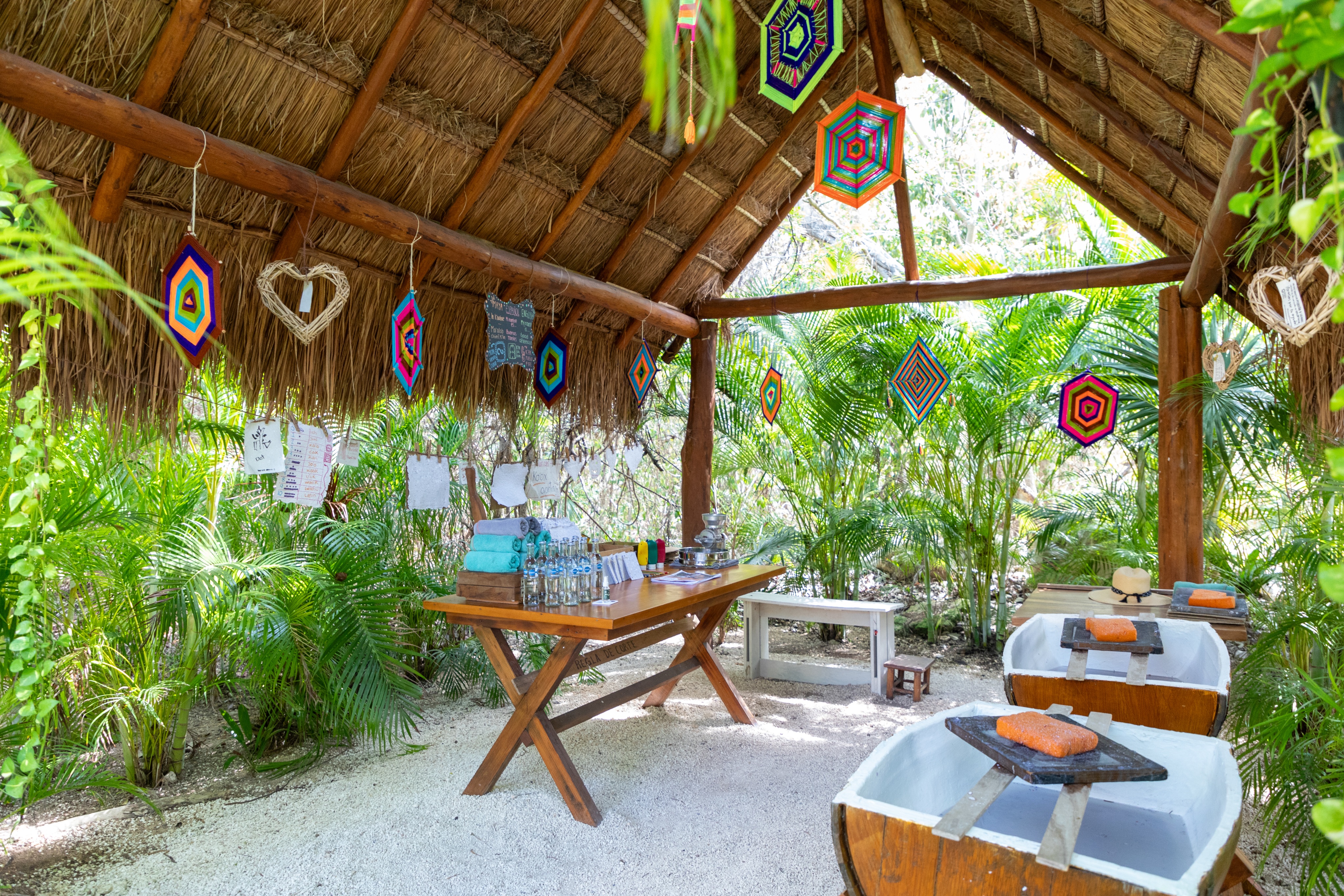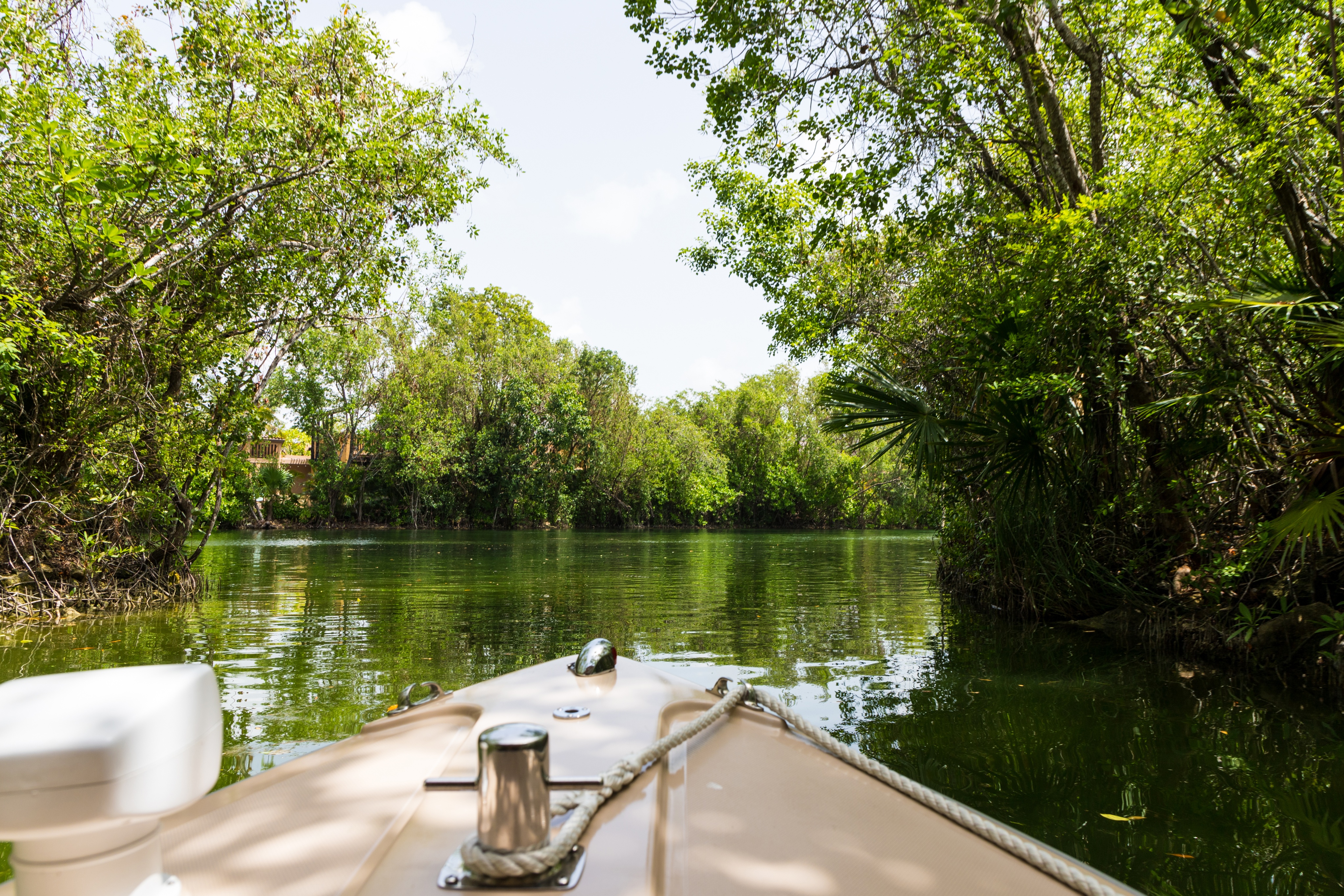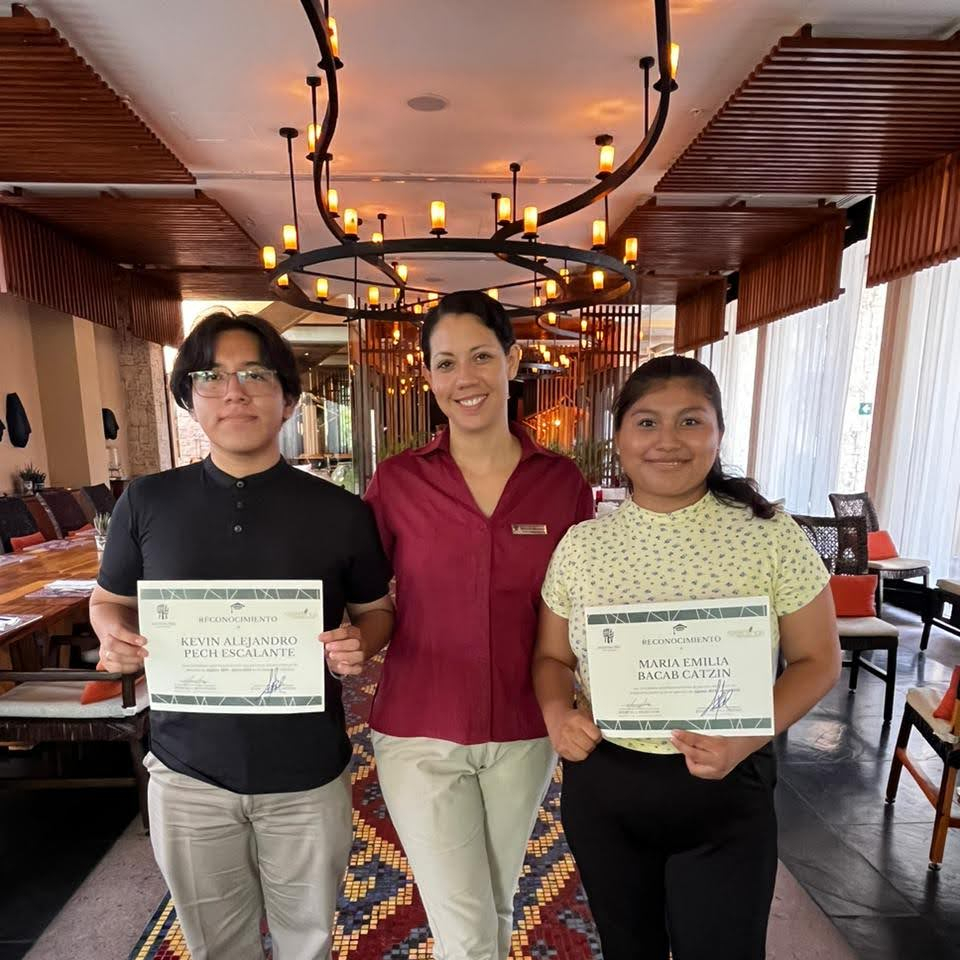Stay for good
Banyan Tree Mayakoba
We invite you to join us in our Stay for Good program, a journey that goes beyond travel. Step into the heart of Banyan Tree Mayakoba, a destination where you can truly connect with its soul. Discover the beauty and authenticity found in its people, culture, hospitality, and traditions. By being part of this experience, you are not only enriching your own journey but also helping preserve and celebrate our heritage for generations to come. Together, we can create a lasting impact—transforming every stay into a meaningful exchange of stories, wisdom, and a shared love for the world we cherish.
Recycled Paper Workshop
At Banyan Tree Mayakoba, we care deeply about the environmental impact of our activities and have implemented a comprehensive action plan to reduce our ecological footprint as much as possible. As part of our ongoing commitment to sustainability, we proudly offer our guests a Recycled Paper Workshop, where they can dive into the world of eco-friendly practices.
Join us for a delightful and engaging experience as you learn about our sustainability initiatives while creating beautiful handmade paper. This hands-on workshop introduces the core principles of the Three R’s: Reduce, Reuse, and Recycle, empowering guests of all ages to take meaningful steps toward a greener future.
Ecotour
Ecotour takes guests along Mayakoba’s canals and waterways, allowing them to discover and learn about the resort’s stunning architecture, the impressive Mayakoba El Camaleón Golf Course, as well as endemic species that call this region home, such as birds, turtles, and even crocodiles.
As the boat glides along the water, guests can take in every piece that makes this corner of the Riviera Maya a place to be treasured, admired, and preserved. Our tour is complimentary and departs daily from the resort’s Main Lobby.
SEEDLINGS
Our SEEDLINGS program is a Banyan Tree Group initiative that aims to nurture young people by providing education and vocational skills, preparing them for life and work. It was launched in 2007 and consists of two phases: the first is mentoring, provided by volunteer collaborators who have received training.
The second phase consists of financial support until the end of upper secondary education, with a total duration of six years.



.png)